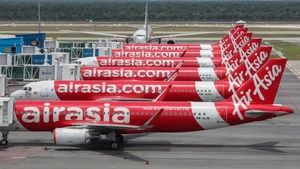
Tata Sons will likely have to make a provision of ₹2,600 crore as accumulated losses for AirAsia India, which it proposes to absorb into Air India and merge with no-frills unit Air India Express, said people with knowledge of the matter. An auditor’s report has cast doubt on AirAsia India as a “going concern,” stating that its net worth has been fully eroded and its liabilities exceed current assets.
Tata-owned Air India proposes to acquire 100% of AirAsia India and has sought Competition Commission of India approval. Tata Sons owns 83.67% in the no-frills carrier and the remaining 16.33% is held by AirAsia Investment Ltd, part of Malaysia’s AirAsia Group.
AirAsia India, which was already reeling under losses, was badly hit by the pandemic, officials said.
Tata Sons did not comment. Officials close to the development said that no decision has been taken on whether the write-off will be included in the balance sheet of Tata Sons or Air India.
“In mergers between two group companies – AirAsia India with Air India Express – if one of the group companies’ liabilities exceeds its assets, the group has to make provisions for impairment in the value of investments if it’s permanent, as per applicable accounting standards,” said Uday Ved, partner at global tax practice group KNAV. “In the case of the AirAsia India merger, additional impairment provisions, if any, will be restricted to the extent of the impairment provisions not already accounted for in the latest reported standalone financial statements of Tata Sons.”
Air India is a full-service airline operating in the domestic and international markets. Air India Express focuses on short-haul international operations, especially to the Middle East from south India and elsewhere. Tata Group has started work on the merger of AirAsia India with Air India Express, said top executives close to the development.
“The ‘going concern’ concept is a key assumption under generally accepted accounting principles and it describes a business that is expected to operate for the foreseeable future,” said Paras Savla, partner at boutique audit and consulting firm KPB & Associates. “A company needs to have a concrete plan to improve business outlook and mitigate the going concern assumption, when it is in an adverse situation.”
Recent Posts
- Astronomers detect first direct image of black hole expelling a powerful jet
- WhatsApp rolling out ‘reply with message’ feature within call notifications
- Multi-Device Pairing May Be Arriving for Apple Watch this Year
- Artificial Intelligence Discovers Hidden Giant, a Planet 5 Times Larger Than Jupiter
- Google CEO Sundar Pichai Talks Bard & The Future Of Search
Recent Comments

Musk replaces Twitter's blue bird logo with 'Doge' meme

Why Twitter has removed The New York Times’ verifed account badge

Twitter says parts of its source code leaked online

Bid to remove tax benefit from debt funds is hasty

Astronomers detect first direct image of black hole expelling a powerful jet

WhatsApp rolling out ‘reply with message’ feature within call notifications

Multi-Device Pairing May Be Arriving for Apple Watch this Year

